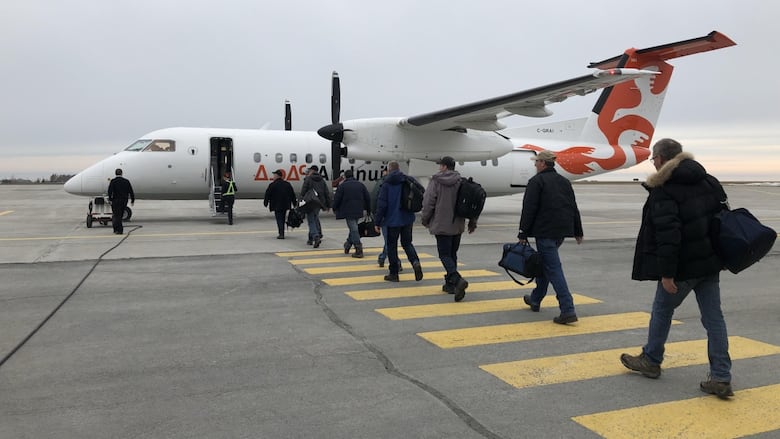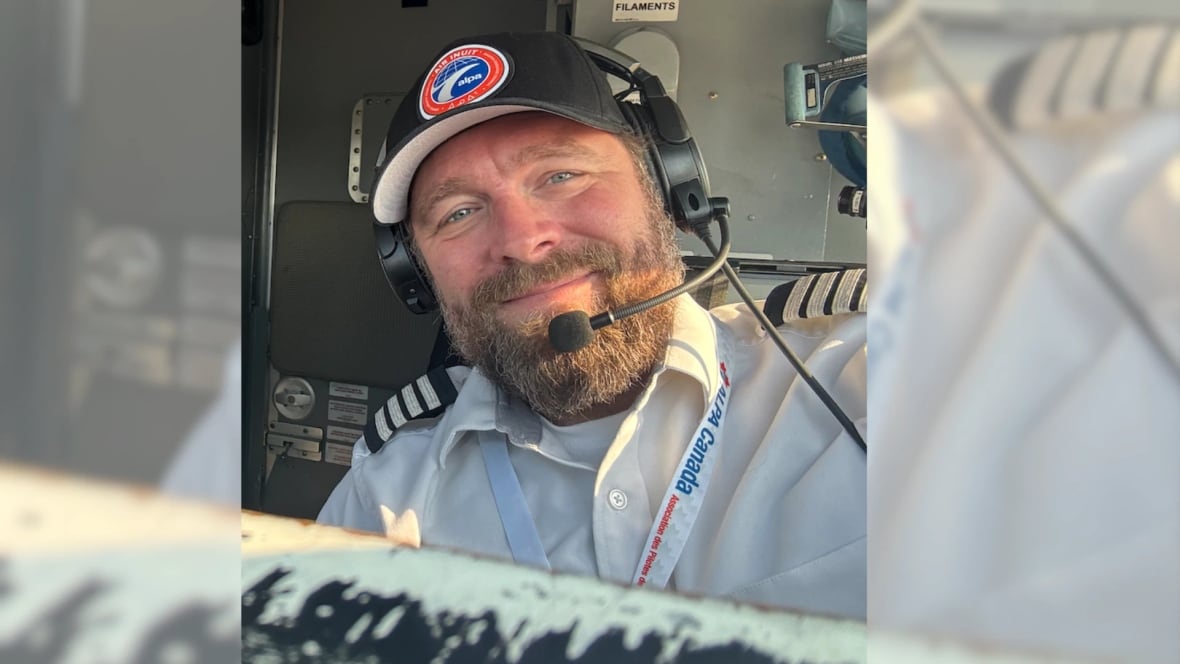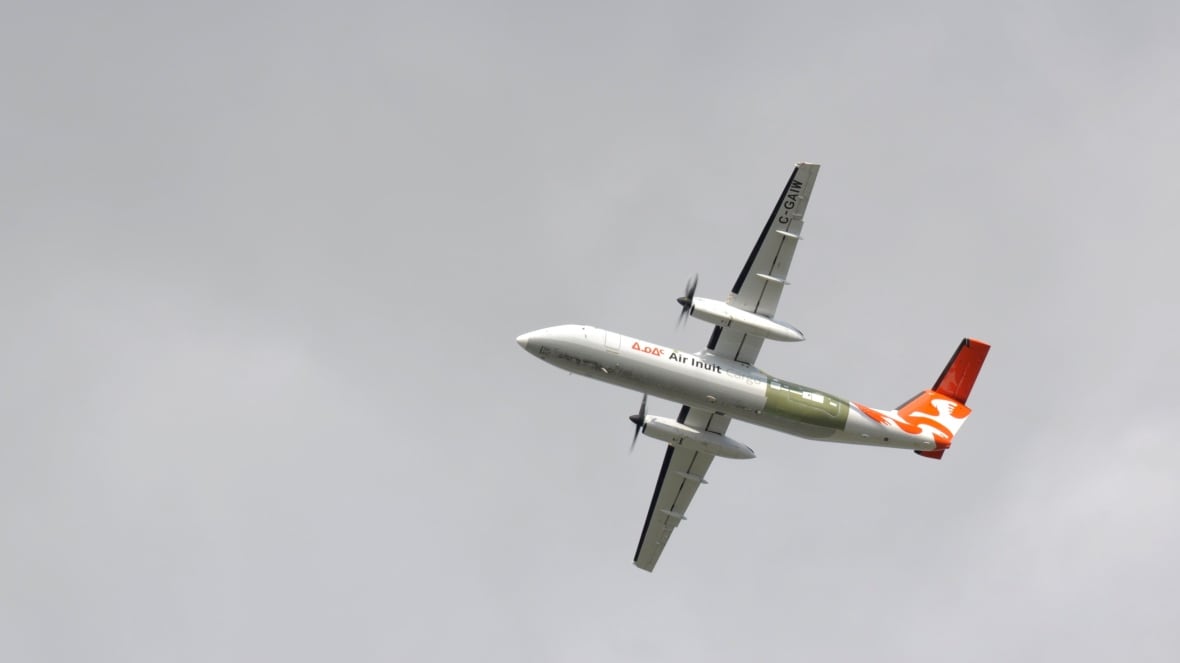Air Inuit pilots dissatisfied with lengthy contract negotiations
Working conditions and pay scale hinder retention, says union

After more than a year and a half, pilots working for Air Inuit say negotiations for a new collective agreement have been too slow.
In late June, the parties entered into a conciliation process to try and reach an agreement, but discussions are still dragging on according to the Air Line Pilots Association International (ALPA), which represents the pilots.
According to the union, the current pay scale and working conditions are hindering retention of experienced pilots.
"Our current conditions are out of step with the rest of the airline industry, and this weakens our ability to retain qualified pilots," said Louis-Philippe Desmarais, president of the Air Inuit pilots' union.
The airline is one of very few operating in Nunavik; it handles the transport of passengers, goods and even medevac services. Flying in the region also means facing challenging conditions, from extreme weather to limited infrastructure.
"The context in which we work, with bad weather, short gravel runways in mountainous areas.... You need experience and should want to retain that," Desmarais said.

Many new pilots
Last week, the pilots published an open letter on ALPA's website.
"Nearly half of Air Inuit's current pilots are newly trained," it reads. "This concerning figure reflects a turnover rate that poses a threat to the service's stability."
According to Desmarais, a slew of newer pilots also puts a strain on operations.
"Training pilots non-stop is normal, but there's also a limit," he said. "It's an added pressure. There are restrictions for new pilots, which means we sometimes can't land because they don't have enough experience."
An essential service?
For now, the union hasn't announced any additional pressure tactics to speed up negotiations.
However, in their open letter, the pilots said they are discussing "which services might be deemed essential under Canadian law in the event we're unable to reach an agreement."

According to Desmarais, a "wave" of pilots are considering leaving the airline.
"But before talking about anything like that, we're trying to get a contract that makes sense right now," he said.
Air Inuit declined to comment on the open letter, but in a statement to Radio-Canada, it said it was "fully committed and focused on signing a negotiated agreement with its pilots."

